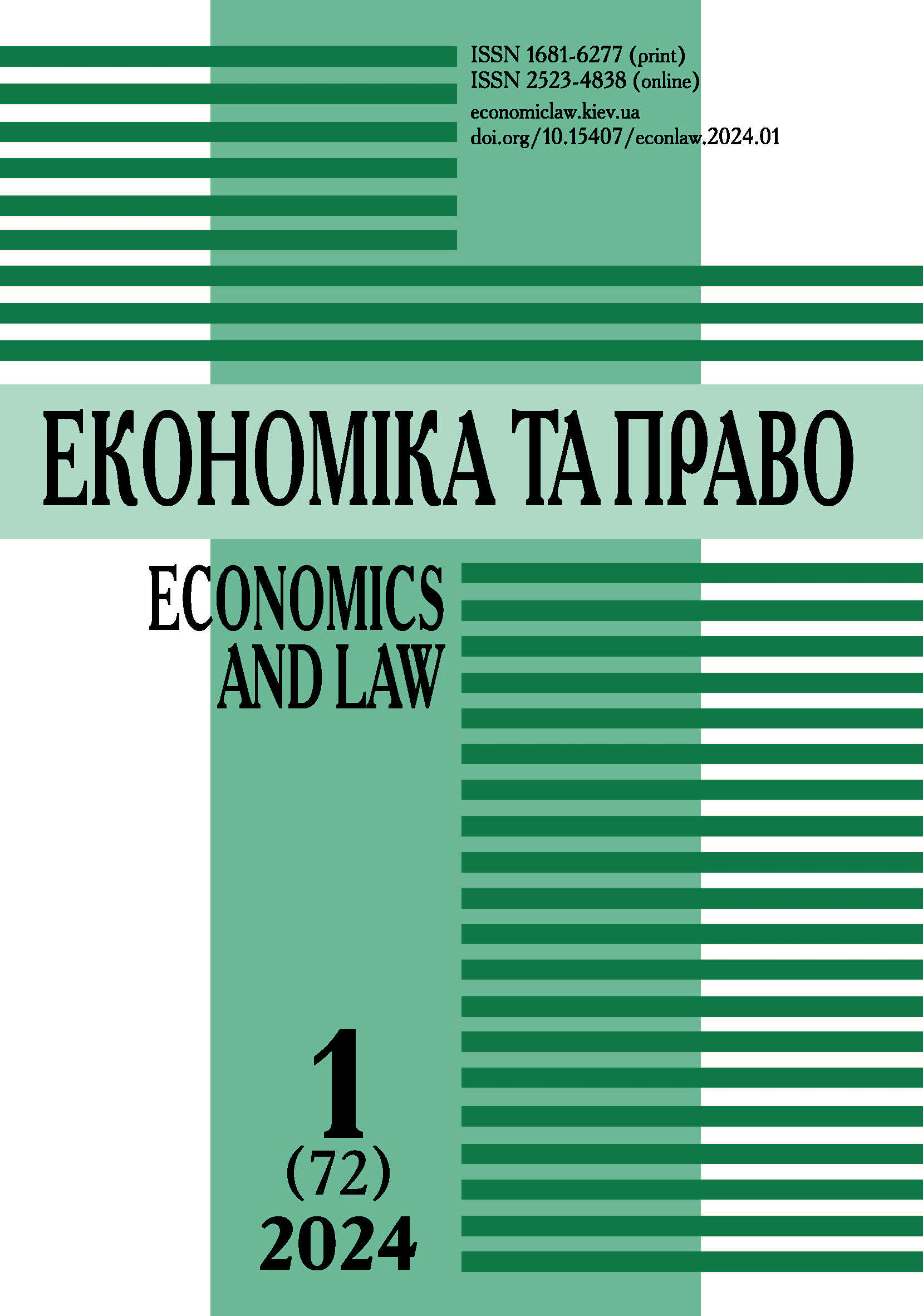LEGAL REGULATION OF TIMESHARE IN EUROPEAN LEGISLATION AND PROSPECTS FOR ITS IMPLEMENTATION IN UKRAINE
Abstract
The article examines approaches to determining the legal nature and peculiarities of legal regulation of timeshare in different countries. It is noted that due to historical factors (traditions in approaches to the interpretation of the legal nature of timeshare) and the peculiarities of legal systems, the understanding of the essence of timeshare differs significantly depending on the country. For example, in English law, timeshare is a form of trust, in Portuguese law it is the right of temporary residence in real estate, in French doctrine it is perceived as the right to use a certain real estate for a certain period of time, etc. Taking into account these factors, there is no unified regulation of timeshare relations at the European level. The European legislator decided to focus only on ensuring the protection of consumer rights in this sphere. To this end, the European Union adopted Directive 2008/122/EU “On consumer protection with regard to certain aspects of timeshare contracts, contracts on long-term tourist products, as well as resale or exchange contracts” dated January 14, 2009. The main aspect of the consumer protection mechanism in this area is the introduction of a guarantee regarding the ossibility of canceling a timeshare agreement within the time established at the legislative level, without the possibility of waiving such a right. Based on the results of the study of the practice of other countries in matters of legal regulation of timeshare, it was revealed that in some countries, in particular, Romania and the Republic of Moldova, the institution of timeshare was introduced into civil legislation in terms of the recodification process. The result of this was the definition of timeshare as a special form of joint ownership, which arises in a situation where several subjects (co-owners) consistently and repeatedly use the right of ownership to movable or immovable property during defined, equal or unequal, time intervals. The provisions of the Romanian and Moldovan legislation on timeshare are quite valuable in the context of the recodification that is taking place in Ukraine and should be considered in the event of a decision to introduce the institution of timeshare into the Ukrainian legal reality.
Keywords
timeshare, temporary ownership, ownership for a period of time, joint ownership
Downloads
References
2. Fatkhudinova I.V. Geneza pravovoho rehuliuvannia dohovoru taimsheru: porivnialno-pravovyi aspekt. Nove ukrainske pravo. 2023. No. 6. P. 26-32. https://doi.org/10.51989/NUL.2023.6.4
3. Bondarchuk N.V. Pravove rehuliuvannia taimsheru za zakonodavstvom Ukrainy. Suchasni tendentsii rozbudovy pravovoi derzhavy v Ukraini ta sviti: zb. nauk. st. za materialamy V Mizhnar. nauk.-prakt. konf. (18 trav. 2017 r.). Zhytomyr: O.O. Yevenok, 2017. P. 365-367
4. Maidanyk R.A. Rechove pravo: pidruchnyk. Kyiv: Alerta, 2019. 1102 p.
5. Bowen D.A. Timeshare ownership: regulation and common sense. Loyola consumer law review. 2006. Vol. 18 (4). Р. 459-478.
6. Ungureanu C. Time-sharing property in European and Romanian private international law. Anale Stiintifice ale Universitatii Alexandru Ioan Cuza din Iasi Stiinte Juridice. 2000-2001. Vol. 46. P. 21-34.
7. Gunnar P.M. Regulation of resort time-sharing. Oregon law review. 1977. No. 57 (1). P. 31-50.
8. Directive 94/47/EC of the European Parliament and the Council of 26 October 1994 on the protection of purchasers in respect of certain aspects of contracts relating to the purchase of the right to use immovable properties on a timeshare basis. European Parliament and Council of Europe. URL: https://eur-lex.europa.eu/legal-content/EN/TXT/?uri= CELEX%3A31994L0047.
9. Directive 2008/122/EC of the European Parliament and the Council of 14 January 2009 on the protection of consumers in respect of certain aspects of timeshare, long-term holiday product, resale and exchange contracts. European Parliament and Council of Europe. URL: https://eur-lex.europa.eu/legal-content/EN/ALL/?uri=CELEX%3A32008L0122.
10. Lulă I. Observaţii asupra reglementării proprietăţii periodice în noul Cod civil. Dreptul. 2012. No. 1. Р. 60-76.
11. Sâmbrian T. Proprietatea în sistem “time sharing” — proprietate periodică — o nouă modalitate a dreptului de proprietate. Dreptul. 1997. No. 5. Р. 35-44.
12. Sferdian I. Periodic Property in the Regulation of the Romanian Civil Code. Debreceni Jogi Muhely. 2014. Vol. 3-4. URL: https://szakcikkadatbazis.hu/doc/1369248.
13. Munteanu L.D. Periodic property administrative and legal issues. Journal of Law and Administrative Sciences. 2015. Special Issue. P. 384-390.
Abstract views: 236 PDF Downloads: 125

This work is licensed under a Creative Commons Attribution 4.0 International License.









